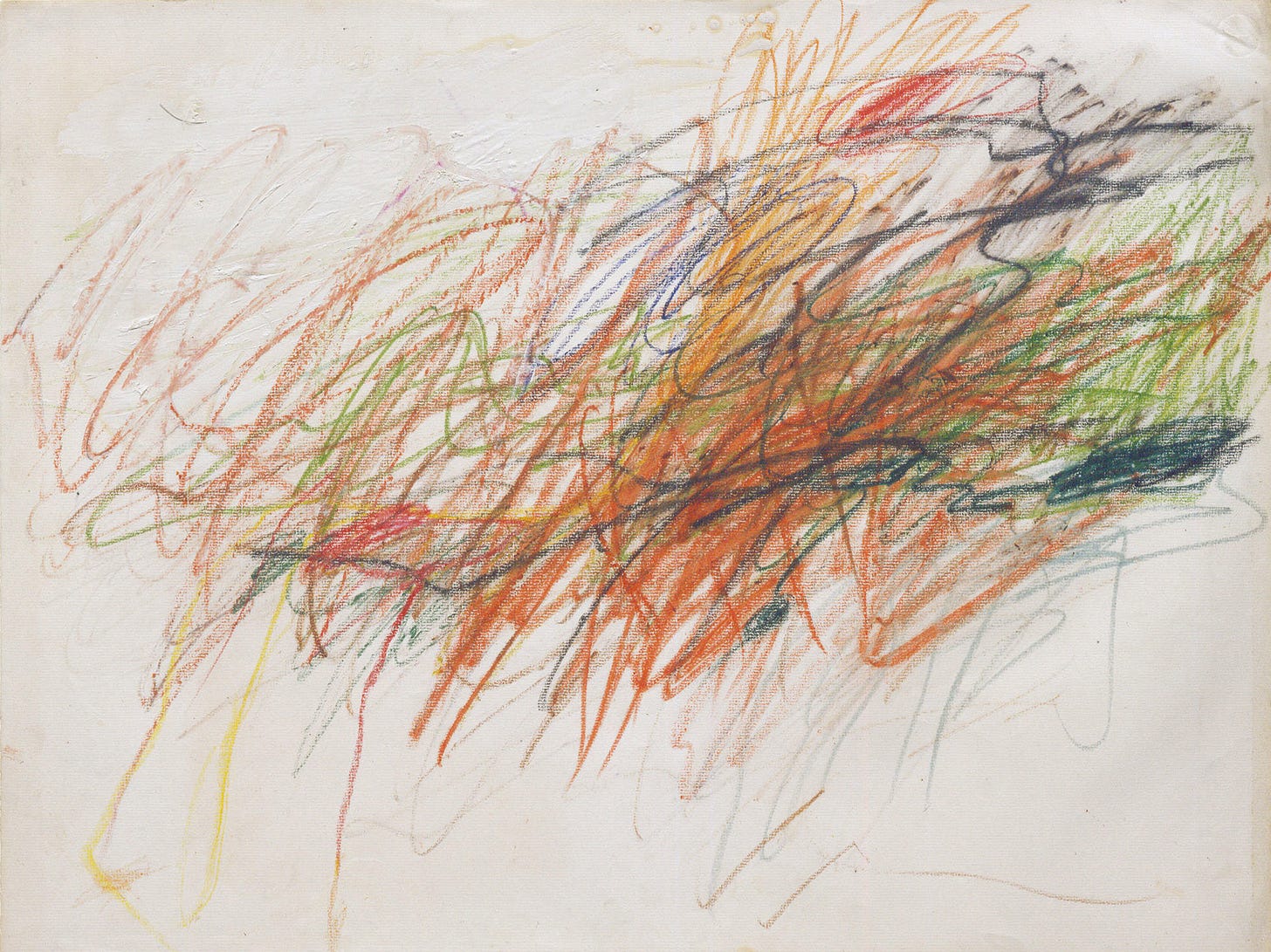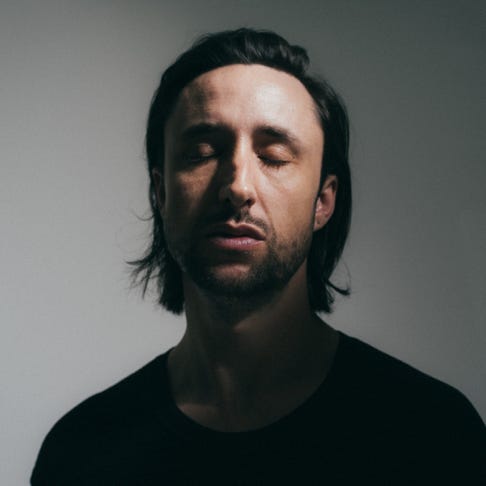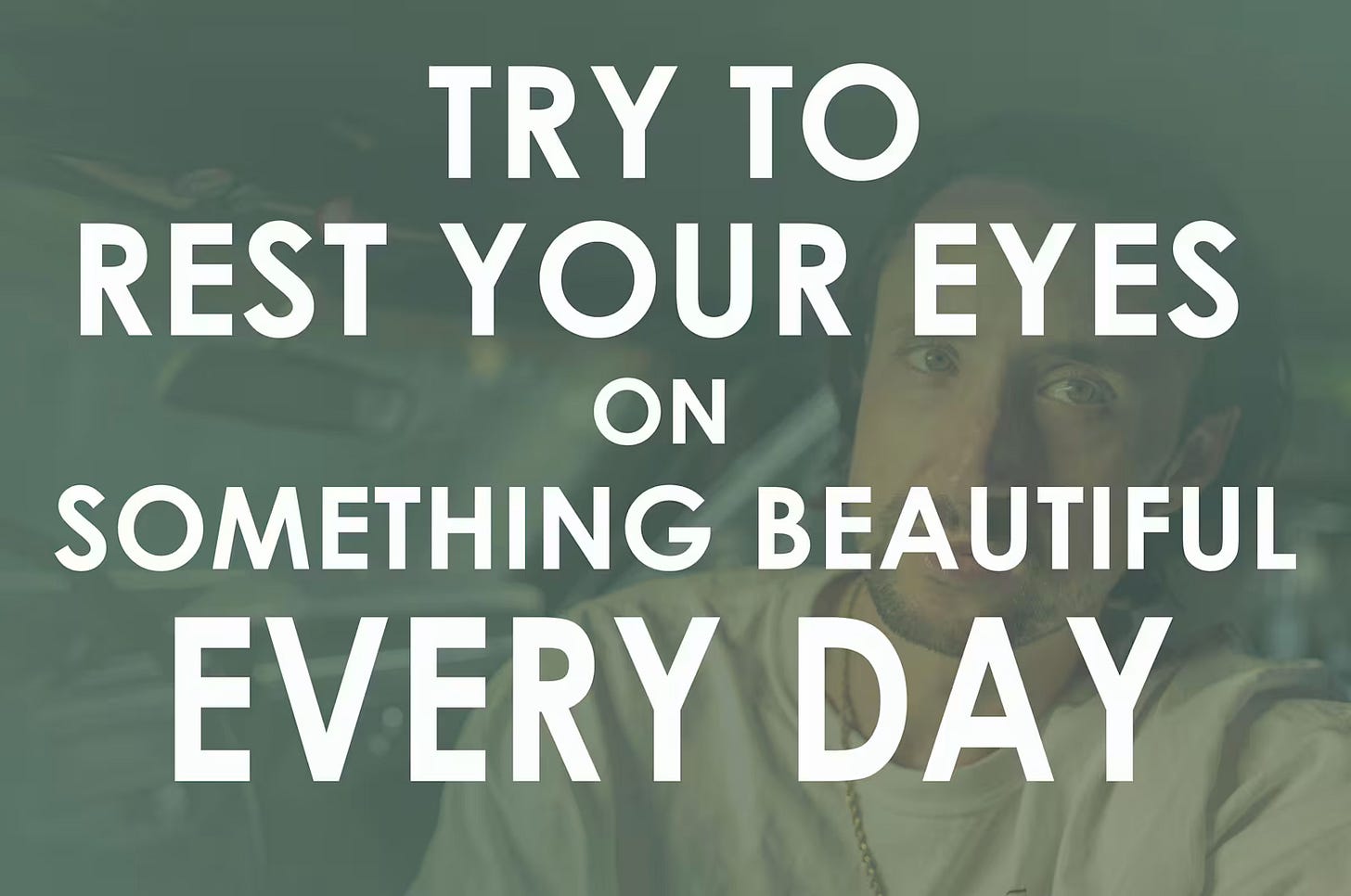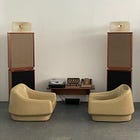We should all consider ourselves amateurs. The term is often misunderstood as a pejorative, suggesting a lack of skill or a failure to achieve professionalism. But I’d like to revisit its original definition: an amateur is a lover, someone who pursues their vocation outside the demands of professionalized mastery. Amateurism isn’t necessarily incompetence (although that can be advantageous, too). It’s devotion.
I’ve been reflecting on this idea ever since I read Tom Krell, the musician known as How to Dress Well, say something like:
In the future, independent musicians will be more like hobbyists, pursuing their art practice alongside whatever else they do to make money.
Krell’s statement feels like a clear-eyed acknowledgment of the financial reality for many DIY musicians today: there’s simply no sustainable, remunerative path forward.
We know why this is. Streaming platforms dominate, paying artists next to nothing, while major labels consolidate profits at the executive level. Until recently, conventional wisdom might have been that you can still make money touring and selling merch. But now, we see household name musical artist cancelling national tours because they’re undersold. Pitchfork Festival—a cultural touchstone for indie music—recently canceled its Chicago festival after 19 years because it couldn’t afford to operate
Yet Krell’s observation wasn’t a lament. It sounded more like a provocation to embrace the possibilities of amateurism. It’s an invitation to resist the commercialization of creativity and rethink what it means to make art. Krell’s framing offers an alternative to professionalization, where creativity is often subsumed by market logic and measured by outputs. Amateurism, by contrast, reclaims creativity as an end in itself—playful, exploratory, and deeply personal.
Beginner’s Mind
What happens when we step away from the pursuit of mastery and instead embrace an amateur’s mindset? Surprisingly, you may find that it leads to more competent work. This is connected to the Zen concept of Beginner’s Mind. In Zen Mind, Beginner’s Mind, Shunryu Suzuki writes:
“In the beginner’s mind there are many possibilities; in the expert’s mind there are few.”
This openness and curiosity dissolve the fear of failure and the constraints of perfectionism. It allows us to reconnect with the more essentially human aspects of creativity: expression, connection and intimacy.
Krell’s music embodies this ethos for me. Listening to How to Dress Well, I get the feeling he’s playing more to his weaknesses than to his strengths. His work—some of my favorite music from the past 15 years—makes no commercial sense. He layers vast ambient soundscapes with heavy beats and weird samples, often letting digital clipping go untamed, evoking a sense of anxious energy; a critical point of agitation at which something breaks into pieces. His falsetto shifts between smooth 90s R&B and something rawer, more fractured, like a mangled Michael Jackson. His songs are wild, expansive collages of ecstasy and devastation.
For Krell, making music isn’t about mastery—it’s about radical vulnerability, both with the medium and with himself. His music is less a commodity and more a form of relational inquiry, a space for asking personal and existential questions.
Professionalism
Music has never been easier to make or cheaper to consume. Today, the technical barriers to entry are almost non-existent. A discerning autodidact with a laptop and a DAW is just as likely to make a hit as a professional producer. There are solutions for nearly every technical obstacle, from plug-in recreations of classic vintage synths, to infinite genre-specific sample libraries, to MIDI chord packs eliminate the need for any understanding of music theory. I came across something recently called ‘synth.gpt’ which apparently can design a sound for you based on a natural language prompt. No, I did not try it.
But this ultimate democratization comes with its own challenges. With so much music being made, the pressure to constantly produce and market your work for algorithmic relevance has radically intensified.
I said earlier that there is no sustainable path forward for the DIY musician. That is, unless they develop a suite of media skills including copywriting, video production, graphic design, and above all, social media management. This is the new métier of the creative producer. There is so much music, and music is so easy to make, that the only way to get your music in front of an audience is to feed it to the algorithms. Then, you have to sustain engagement with that audience until they want to buy something other than your music, from you. The art of music is—unfortunately, but understandably—secondary.
I think about Tom Krell in contrast to someone like YouTuber/musician, Nic D who advises creators to develop the social media content first, then write the songs around that content to maximize their potential for viral circulation. His strategy involves releasing singles every two weeks, each accompanied by 30 pieces of tailored video content and multiple posts across various platforms per day. It works—he gets tens of millions of streams per song and roughly $50k a month from Spotify alone. His whole strategy revolves around making songs into advertisements for his personal brand, and using data to ensure that they circulate in the right places.
I’ve never listened to a song by Nic D, and I don’t plan to. But I bring him up because his success exemplifies the demands placed on today’s DIY musicians. It’s not about making great music; it’s about feeding the algorithm correctly. The space for genuine creative exploration narrows when every project must first be optimized as content. I find this a rather bleak reality. The modern artist must be not only a creator but also a curator of their personal brand, a manager of algorithms, and a cultivator of perpetual engagement.
Ambition // Ambivalence
I say all this not to dissuade anyone from learning modern creative marketing tools. In fact, this weekly newsletter is, in its own way, my attempt to reckon with demands placed on all musicians to build and eventually monetize their audience. It’s just that I’m more comfortable writing about topics that bear directly on my own life as a musician than I would be doing little dances for TikTok, or whatever.
My impulse to invoke amateurism isn’t a rejection of ambition, nor of entrepreneurial thinking. I’m simply suggesting that you ground your creative work in something more meaningful than market logic. Amateurism is approach that prioritizes the creative process over the product, inviting a return to the joy, curiosity, and intimacy that first drew you to your art.
And this, in itself, is strategic. Your best work is that which is most uniquely yours. The more intimate, playful and connected your creative practice is, the more authentic your artistic voice will be, and the better your work will resonate with those who hear it. In a moment when AI agents can compose, produce and even market your music according to the new data-informed professional standards of the musician-as-content creator, the most precise form of resistance is to use your beginner’s mind, and develop your own standards for what constitutes ‘good work.’
In Practice
So what does this mean in practice? For me, this means embracing unconventional sounds and production techniques that carry a personal emotional charge. I love, for example, the way a piece of fuzzy white noise sounds when crushed with a heavily sidechained compressor triggered by an inaudible input. It creates this kind of dumb-sounding rhythmic whoosh, laying bare a common "production hack" and entirely nullifying its effectiveness by making it so obvious. My own productions are also full of vocal distortions, which give me psychological distance from my voice. I repitch, reverse, and otherwise mangle my singing to expand my thinking about what my voice can do and to overcome my insecurities as a vocalist.
I’ve grown suspicious of teachers who claim they can teach you how to make "professional-sounding" beats. To me, this suggests they’ve analyzed a broad market and want to teach you exactly how to serve it. But I don’t want music that’s created to serve a market. My favorite music—including How to Dress Well—is music that somehow changes me as a listener. It’s music that requires an emotional leap, a suspension, or transformation. The best art isn’t something you already know you want to consume—it’s something that modulates your sensitivities and teaches you something new about yourself.
Tom Krell’s music is a reminder that making art can be a radical act of love and resistance—a way to reclaim creativity as a space for play, self-discovery, devotion, and connection. Amateurism helps protect creativity from the homogenizing forces of our modern media system, ensuring that we don’t all just dissolve into data.
Thank you for reading.
I want to hear from you
If you’re enjoying Open Studio, I’d love to hear your feedback. Is there anything you’d like me to cover? What questions do you have? This letter is a space of exchange, and all participation is encouraged.
What I’m listening to
10 new songs, updated weekly
Items of Interest
Check out Ways of Listening if you haven’t already
Ableton Open Studio FOUNDATIONS available for download. It contains everything I know about getting started in Ableton Live, and tons of additional resources. If you have the software but haven’t fully produced a song yet, this is the perfect program. I’m looking for lots of feedback on this first version so I can improve it. If you need a discount code, just send me an email or a DM @abletonopenstudio on Instagram.
An interesting discussion from Broken Growth on Substack about ‘late stage social media’ and thinking smaller in your marketing efforts.
Here’s Tom Krell on How Long Gone talking about a lonely solo tour in Poland, Boulder, Colorado and basketball, among other things.







